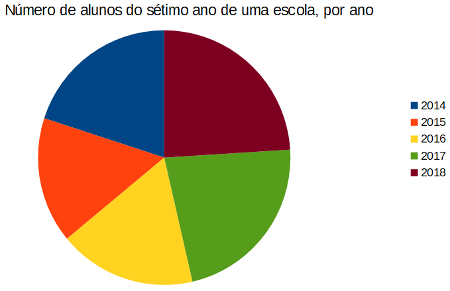The expression sustainability – or sustainable development –, increasingly recurrent in the means of information and communication, refers to a premise that advocates development of societies based on the preservation of resources in order to guarantee the maintenance of these for the next generations. Thus, the concept of sustainable development is related to the idea of continuity, expressing a conception of cyclical renewal.
This term was created in 1987, at the UN General Assembly, during the release of the Our Future report in Common, created from studies carried out by working groups composed from the Conference of Stockholm.
The discourses that defend and support the idea of sustainability are structured around two cores: the first warns of the depletion of natural resources and a possible catastrophe generated by the absence of these in the society of consumption; the second points out the climatic and natural consequences related to considerable “unsustainable” consumption, with emphasis on Global Warming.
It is important to emphasize, however, that sustainable development is not limited to the discourse environmental, also referring to other economic, political, social, cultural practices, among others. Thus, in a way, it is necessary to maintain actions that perpetuate the socioeconomic conditions for the development of future generations.
One of the basic principles of sustainability is the so-called Triple Botton Line (“Three pillars line”, in free translation), which would be supported by the tripod: economically viable, socially fair and environmentally correct. To achieve these goals, it would be necessary to promote a form of non-linear development, that is, one that is not limited to producing, consuming goods and generating waste. It would be necessary to encourage recycling actions, consumption control and environmental awareness.
Criticism of sustainability
Although the sustainability discourse is widely accepted and spread around the world, it is not unanimous. Thus, some critics are extremely skeptical of the principles and, in some cases, of the concepts related to sustainable development.
We can list three main types of criticism: 1) that sustainability is unnecessary; 2) that she is impossible 3) and that she is following a wrong path. It is worth remembering that this division is only didactic, being practically impossible to consider that they form homogeneous groups of thoughts, given that each critic manifests himself in a way differentiated.
The first challenge to sustainability, broadly speaking, argues that the sustainability discourse is actually an unfounded alarmist proposition. Firstly because the climatic effects related to human action would not be so catastrophic how much is advertised, given that Global Warming, for example, is the target of challenges from some scientists. Second, it is considered that market laws, by themselves, would regulate the use and availability of natural resources, as they decrease, their prices would increase and consumption would decrease, stimulating alternative technological actions (in this case, the example of Oil) ¹.
Do not stop now... There's more after the advertising ;)
The second challenge refers to the impossibility of applying ideas related to sustainability. This criticism argues in relation to the ineffectiveness of the “three-pillared line”, emphasizing the impossibility of its implementation. In this view, in the context of capitalist society, what is economically viable will hardly manage to behave as environmentally correct. Thus, those countries that adopt a development model touted as sustainable would fall into cycles of recession and economic crises. Underdeveloped countries would be the most fragile because they are fundamentally dependent on the export of raw materials².
The third challenge states that, for a real attitude of sustainability to occur, a total reformulation of their theses, including those who believe that, in the current context of the market economy, it would be possible to application. This line of argument states that the sustainable development discourse is, in itself, contradictory, as it would stimulate the increased consumption, which, in turn, would further raise the problems that the very idea of sustainability would desire fight. Thus, there is, in fact, an economy based on environmentally ecological advertising actions that would work only as marketing, without great effectiveness³.
Thus, given the proposals for the elaboration and consolidation of sustainable development and the placement of their criticisms, we can see that this topic is quite controversial. What leaves no doubt is that the debates need, increasingly, to be expanded in order to seek advances for a better understanding of this issue.
_____________________________
¹ See: WATTS, T. Sustainability - an assault on economic science (07/12/2009).
² See: BOFF, L. Criticism of the standard sustainability model (29/01/2011).
³ See: DAYS, B. Ç. the myth of sustainability (04/28/2010).
By Me. Rodolfo Alves Pena


